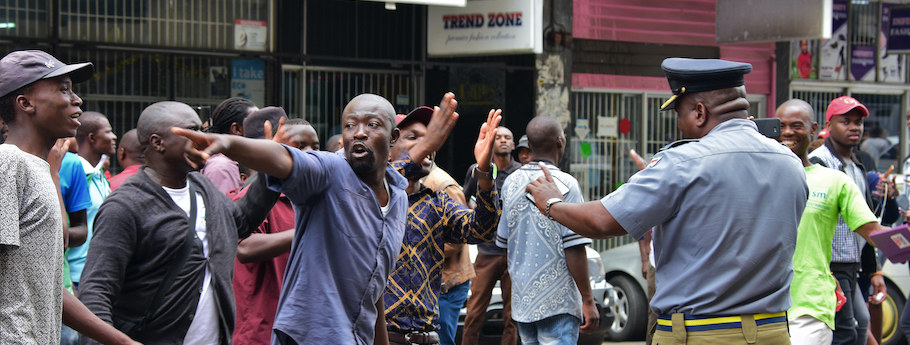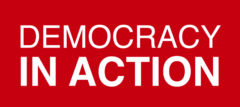
Zimbabwe will hold general elections on 23 August. In the presidential ballot, incumbent President Emmerson Mnangagwa, leader of the ruling ZANU-PF party will face off for the second time opposition leader Nelson Chamisa, from the Citizen’s Coalition for Change (CCC). Serious questions have been raised about whether this will indeed be a free and fair election. The electoral campaign has taken place in a climate where state intimidation, harassment and violence against the opposition is rife, the governing party’s control of the media is strong, and the institutions that are supposed to oversee the electoral process lack the independence needed for the task.
Mnangagwa took over as Zimbabwe’s President following the 2017 military coup that ousted the late Robert Mugabe, who had ruled the country since its independence in 1980. Mugabe’s regime saw a long history of electoral rigging, political violence and corruption, and ended with the country plunged in deep economic crisis and chaotic governance. Mnangagwa had been part of Mugabe’s governments from the start and rose all the way to Vice President. When he became president, there were some hopes that he would deliver on his promises to bring positive changes and reforms. In August 2018, all such hopes were dashed when he deployed the military in the streets of the capital Harare, while Zimbabweans were waiting for the results of the first post-Mugabe presidential election. Six people were shot dead on that occasion. Mnangagwa was elected after a highly disputed election marred with irregularities. Opposition leader Nelson Chamisa, who had come second according to the formal count, challenged the results in court but without success.
Even with Mugabe out of the scene, Mnangagwa’s rule continues to be marked by a shrinking democratic space, rife with corruption and repression of the opposition.
In terms of media coverage, the opposition is struggling to get a level-playing field. ZBC, the state-owned TV, is seen as a mouthpiece of the ruling party, and doubts have been raised about the independence of some of the new private TV stations. Independent journalists are under threat, as they are often barred from covering stories involving the opposition, and in some cases are arrested on duty, for example while covering elections at polling stations. In another disturbing move, several international media houses have been denied clearance to cover the upcoming elections.
While the opposition has successfully used social media to broadcast its messages and rally support, large numbers of the 61.4% living in the rural areas do not have internet access – many others, in both urban and rural areas cannot afford the cost of data.
The institutions that are expected to safeguard the democratic process have been weakened and manipulated to pursue the ruling party’s interests. The Zimbabwe Electoral Commission, tasked with overseeing the integrity of elections, has among its members several children of ZANU-PF stalwarts, casting serious doubt over the Commission’s independence.
Convictions and sentencing of opposition leaders on trumped up charges also cast doubt over the integrity and independence of the judicial system. The police has been harassing, violently attacking and arresting opposition activists. According to a July piece in The Africa Report, Chamisa’s CCC, the main opposition party, has had 92 campaign rallies pre-emptively banned by police.
Political violence against the opposition is not limited to the state security forces, but has also seen the involvement of ZANU-PF activists and crowds. In the early months of this year, elderly CCC members were assaulted at a local meeting by suspected ruling party elements. In early August, an opposition activist was killed in Harare while fleeing a ZANU-PF crowd. In the buildup to the country’s by-elections of March 2022, another opposition activist was murdered by ruling party activists at a rally in Kwekwe, a city in the Midlands province. The alleged perpetrators were initially apprehended but were eventually granted bail. Over a year later, their trial is yet to commence and the suspects are walking freely, with reports that they have been threatening the deceased’s family. Job Sikhala, a CCC member of parliament, was arrested upon demanding justice following the brutal murder of Moreblessing Ali, another opposition activist, in May 2022. Sikhala was denied bail on multiple occasions and has been under pre-trial detention for over a year now.
This is all clear evidence that the opposition has not been able to campaign freely, and that citizens and activists have been denied their basic constitutional freedoms. While the incumbent government has been active in curtailing citizens’ freedoms, they have largely neglected the country’s economy and the welfare of Zimbabweans.
Earlier this year, an Al Jazeera English documentary exposed a criminal network that exported Zimbabwean gold illegally with the collusion of government officials. In 2020, the then Minister of Health was implicated in a corruption scandal which involved the awarding of a tender to a company that supplied Covid-19 medical supplies at highly inflated prices. He was arrested, but unlike opposition political players who are left in prison for months, he was instantly granted bail. As the politically connected continue to enrich themselves, most Zimbabweans are plunged into crisis, and have to deal with the devastating effects of inflation, unemployment and an ailing health sector. A country that used to be the bread basket of Africa has since been reduced to a vulnerable economy where citizens are often struck by hunger.
In such a challenging political environment, what can the opposition do to strive for a better future for all Zimbabweans?
It is imperative for the opposition to remain united – there are some constituencies where internal struggles in the CCC have led to multiple candidates claiming to represent the party. In future elections, it is important that the process of appointing candidates for the main opposition party becomes clearer and more transparent in order to minimise grievances. Since Chamisa’s CCC filled the gap left by the demise of the Movement for Democratic Change (MDC), the opposition has gone through major organisational changes. What is important for the CCC to succeed is to move beyond the emphasis on a few leading figures and work towards strengthening of the party’s collective structures.
Given the many attempts by government to curtail democratic freedoms, many potential voters might be discouraged from voting altogether, mistakenly thinking that the result has already been decided. In the few days remaining to the election, it is very important that the CCC focuses on mobilising people to vote, which will also help restore people’s confidence in the democratic process. No matter what the government might be doing to interfere, Zimbabwean citizens still hold the power to determine the final outcome, especially if they come out to vote in numbers.
Tererai Obey Sithole currently works as PhD Research Fellow and Course Instructor at the Department of Global Development and Planning at the University of Agder in Norway. He is a political and human rights activist and has previously served as the national youth leader for Zimbabwe’s main opposition party and Secretary General for the Zimbabwe National Students Union.
The views expressed in this article are those of the author and do not necessarily reflect Democracy in Action’s editorial stance, or the position of any institution or association.
